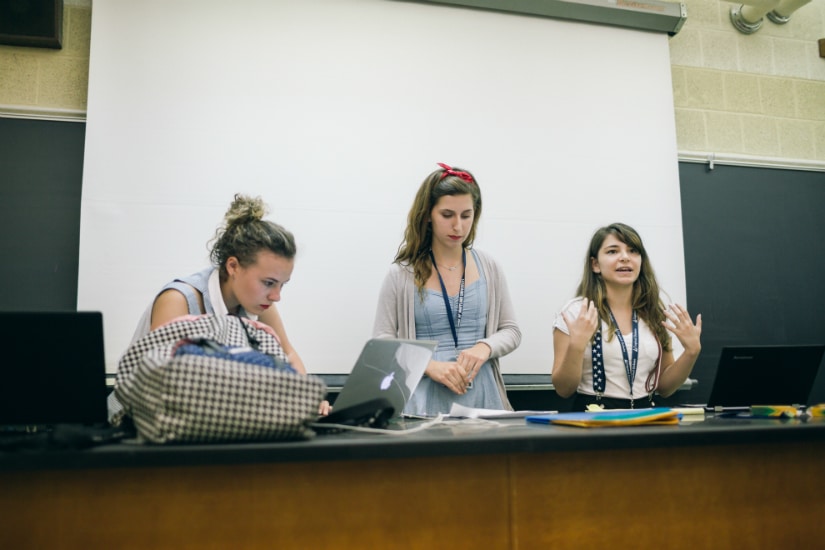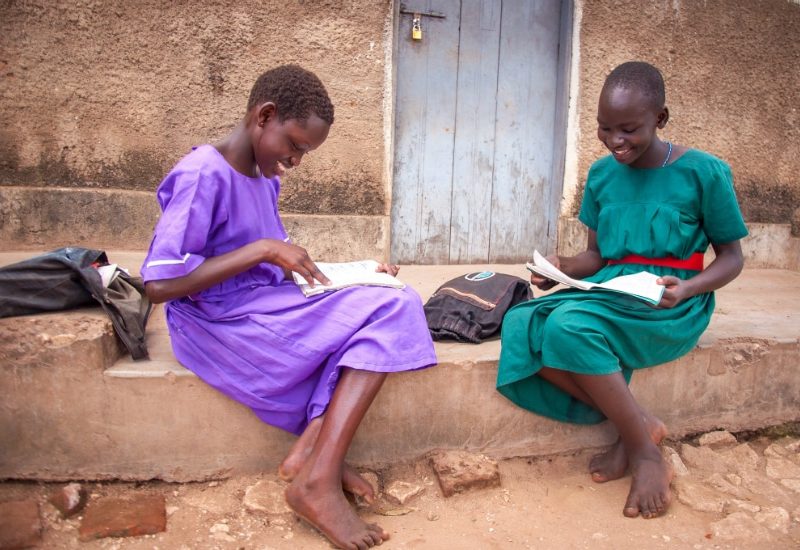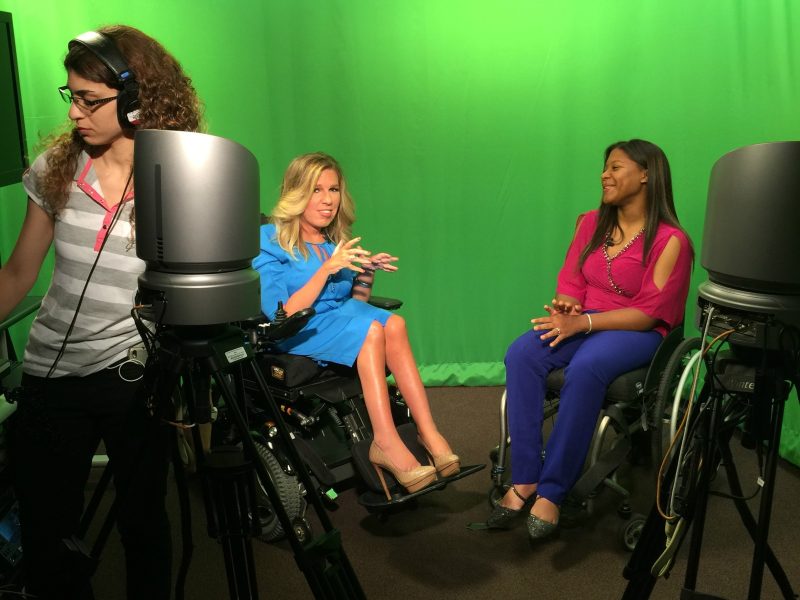
NEW YORK CITY (WOMENSENEWS)—As a novice, Anna Maria Mangafas expected a steep learning curve on a nationally renowned debate team she joined as a freshman, but she did not expect discrimination to be one of her experiences.
Halfway through her first season last year, she and her female partner found themselves debating two boys on the benefits of an American carbon tax. While the questioning periods between opposing speakers, known as crossfires, are often lively, this one was pretty “heated,” Mangafas said from her home in New York City.
“As soon as the crossfire ended, he was like, ‘This girl’s a bitch.’ to his partner, loud enough for the judge to hear,” she said. Although the insult was audible, the young man was not reproached. Mangafas didn’t report the incident to the tournament staff. “I felt like I shouldn’t report it is because of the whole over dramatic crazy woman stereotype, like girls flipping out over nothing,” she said.
It was an eye-opening moment for Mangafas. “It made me see that when I’m able to beat a guy and like take charge of a round it’s my fault? Like, am I to blame for being successful? It also really highlighted the double standard of like how girls who are assertive are catty but guys are commended for it.”
For the four teens interviewed for this article over Facebook messenger, dealing with sexism was as much as part of the extra curricular activity as was public speaking and presentation skills. These girls look back on the experience and realize they were treated differently than the boys. They were given less attention, support and simply not taken as seriously as their male counterparts.
“I earned the names ‘dragon lady’ and ‘PMS dragon’ on the circuit as a novice because I was very assertive (and the opposite is usually associated with Asian women),” said one Iowan teen, a competitor on local and in national elite tournaments. “It made me feel as though my arguments were sub-par because I was ‘too aggressive’ and scared judges into voting for me.” She, like others interviewed for this article, asked to remain anonymous in order to avoid backlash from the debate community.
These young debaters are hesitant to formally go on the record about the gender bias they experience because they fear repercussions and negative comments from the judges, who are in regular rotation on the debate circuit. Poor relationships with judges can lead to lost rounds, and lost rounds can impact chances at college scholarships targeted at successful young female debaters, as well as chances at becoming elected officials within their own debate teams.
To let off steam and seek peer support in a safer, more anonymous environment, young women of this generation have taken to social media. Here, they can discuss the gender discrimination and air complaints about coaches, teammates, competitors without fear of retribution.
Sites, including breaktheceiling.org and badballotblog.wordpress.com allow young women an open discourse on issues including what they perceive as judges’ sexism. A recent post from an anonymous debater includes a ballot from a Public Forum round between a pair of girls and a pair of boys. From the ballot, it seems to have been a hotly contested round. The judge notes that the young men were strong, forceful, and clear, and that these qualities are “very good.” However, the young female debaters were cautioned to”monitor [their] emotions.”
Another debater, a member of a nationally competitive team who asked to remain anonymous because, “I just don’t want to end up personally implicated or outed, there’s a crazy social stigma on the team and the circuit on talking about people’s fucked up nature and things,” told Teen Voices over private message that her coaches were part of the problem as well. “They would also blatantly prefer coaching the guys on the team, never offering the girls coaching at tournaments,” she said. She also recalled incidents where female teenage competitors were rated by their looks instead of their skills.
High school forensics, better known as “speech and debate,” has been a gender-stratified activity from its conception in 1925. The elimination of separate “Boys’ Extemporaneous Speaking” and “Girls’ Extemporaneous Speaking” in 1984 is evidence many coaches and students use to argue that separatism and sexism is still very much alive in the community. In 1985, policy debaters at the National Debate Tournament, sponsored by the American Forensic Association with the Ford Motor Company Fund, were 75 percent male and 25 percent female and the numbers had made little progress towards equality as late as 2001. Debate’s gender breakdown is difficult to ascertain now, because a representative for the National Speech and Debate Association told Teen Voices that the gender of competitors is not collected at tournament registration, which is the case for the majority of the national circuit. Any observation on gender distribution would be a guesstimate.
“Female competitors are on either end of a double-edged sword” Savon Ayodeji, director of debate at Capitol Debate, a for-profit organization that administers academic camps and provides debate support to metropolitan areas globally, said. “We, as a society, have created certain norms such as what types of voices, styles, and mannerisms, that we think embody persuasiveness. Unfortunately, this ‘ideal debater’ image tends to be the opposite of a large amount of perceived female qualities like higher voices and potentially less aggression. [Female participants] debate the way they are comfortable and are told you aren’t ‘aggressive’ enough or they try to identify with those norms and are told they are ‘too aggressive.’”
To account for the struggles of young women in the activity, Ayodeji notes actions the organization takes to maintain a gender balance in the activity. “Capitol Debate makes a point of hiring strong female lead staff so that female students who attend our camps have a female role model to look up and talk to about the debate community and being a participant in it.” It seems these actions have a positive outcome, as he says Capitol has hosted camps where female students outnumber their male counterparts.
Gender discrimination also manifests in sexuality and gender identity becoming fodder for judges’ criticism. One young individual, a junior varsity debater in college who grew up in Kansas and prefers they/them pronouns, shared the discrimination they faced because of their queer identity and beliefs. “I have been called a dyke, voted down because I was ‘too passionate about feminism,’ and told that my narrative about my past was ‘made up and whiny.’” They said. “We must integrate womxn and minorities into the judging pool, and change our attitude towards others. It is not fair that judges resent judging me from the start.”
However, one girl at least was able to own her nickname as “Dragon Lady.” “I started to embrace my nickname. I would walk into a room, and these boys who would typically look at an Asian woman and be like ‘easy win’ were now looking at an Asian woman and saying ‘it’s her, goddammit.’ It turned the tables on the oppressive power structures in place in debate.”


